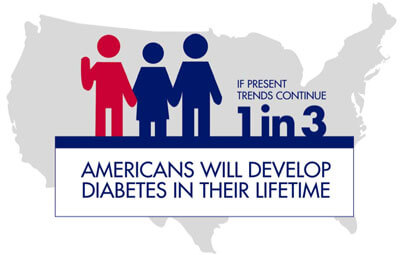Hurricanes, wildfires, winter storms, genetic conditions. Some challenges are outside our control. But we do have control over our health, to a bigger extent than we sometimes think.
For example, it is possible in many cases to fend off diabetes. It’s a common, serious disease and it can have even more harmful consequences. Diabetes caused kidney failure for 40 percent of the people who stay alive with dialysis at Northwest Kidney Centers. It’s the single biggest cause of kidney failure among the patients we treat.
Experts estimate that 150,000 people in Washington—a small city’s population—have diabetes and don’t know it. About 2 million people—a pretty big city’s worth—have pre-diabetes. This sneaky disease may not have symptoms until it has done permanent damage throughout your body, including your kidneys.
We take note of this at Northwest Kidney Centers because we hope one day to be out of business—when kidney failure is a thing of the past. Fighting diabetes is one step on the path to that day.
Whatever your physical condition, your diet and physical activity are key.
- Eat a balanced diet and limit your portions. Explore the hundreds of kidney-friendly recipes on our website.
- Include more natural foods and fewer packaged or prepared ones. That way you will avoid a lot of sodium hidden in your food as a preservative. As a result, you may lower your blood pressure and lose weight, especially important for people with Type 2 diabetes. (Like diabetes, high blood pressure is a significant cause of kidney failure.)
- Get regular exercise – 30 minutes five days a week is a good goal, and any amount helps. Being physically active can prevent or delay type 2 diabetes, and it lowers blood pressure. Exercise also contributes to weight loss and conditions your heart.
- Be careful with drugstore remedies. Avoid regular, long-term use of over-the-counter drugs for pain and inflammation such as ibuprofen, Advil, Aleve and Motrin.
- Ask your doctor to test your kidneys if you fall into any of these higher-risk categories: hypertension/high blood pressure, diabetes, overweight, family history of kidney disease, 60 or older, or African American, American Indian, Asian American or Hispanic heritage.
November is National Diabetes Month and November 14 is World Diabetes Day. It’s a good season to learn more about this important health challenge.
Check out the information at Diabetes Connection, Washington State’s comprehensive collection of classes and resources for people living with diabetes. The healthy choices you make to prevent or manage diabetes will also benefit your kidneys.
Tags: diabetes